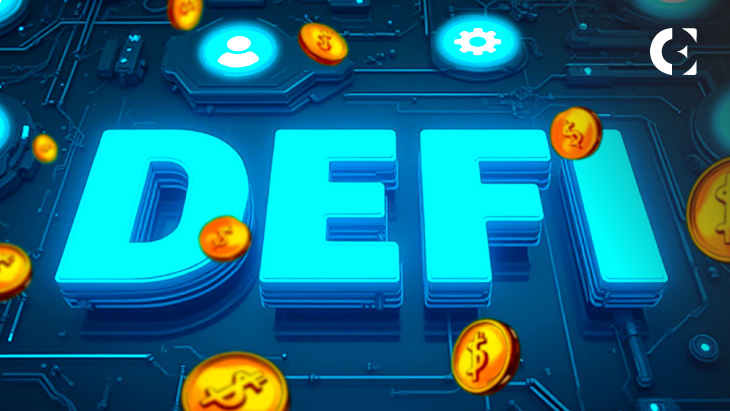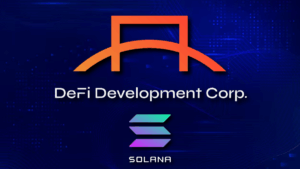Unlocking DeFi: How Decentralized Finance Eliminates Middlemen

Understanding Decentralized Finance (DeFi): Transforming Financial Services
Decentralized Finance, commonly referred to as DeFi, is revolutionizing the way individuals engage with financial services. Utilizing blockchain technology, DeFi enables users to lend, borrow, trade, and save without the need for traditional intermediaries such as banks. This article delves into the workings, features, legal challenges, advantages, and potential risks associated with DeFi.
- The Emergence of DeFi
- How Does DeFi Operate?
- The Role of Blockchain Technology
- The Functionality of Smart Contracts
- Decentralized Applications (dApps)
- Understanding Liquidity Pools
- The Importance of Oracles
- Key Features of DeFi
- Transparency
- Absence of Central Authority
- Interoperability
- Reduced Transaction Costs
- Global Accessibility
- Comparing Centralized Finance and Decentralized Finance
- Centralized Finance (CeFi)
- Decentralized Finance (DeFi)
- Legal Challenges Facing DeFi
- Advantages of Decentralized Finance
- Risks Associated with Decentralized Finance
- The Significance of DeFi in the Decentralized Economy
The Emergence of DeFi
The primary goal of DeFi is to create a financial ecosystem that is open, transparent, and accessible, eliminating the reliance on banks and other intermediaries. Although the concept of DeFi originated with smart contracts in 2015, it gained significant momentum in 2017 as developers began exploring innovative applications. The introduction of platforms like Compound, Uniswap, and Aave in 2020, which featured yield farming and liquidity mining, attracted billions in total value locked (TVL) by offering users lucrative returns.
Transactions became streamlined, requiring only a crypto wallet and internet access, thereby simplifying the process. This environment also encouraged developers to create new financial tools and services within a more open framework. Despite facing challenges such as coding bugs and ambiguous regulatory landscapes, DeFi continues to expand, drawing interest from both individual users and large corporations.
How Does DeFi Operate?
The Role of Blockchain Technology
DeFi platforms leverage blockchain technology, which serves as a secure and transparent digital ledger for all transactions. This ensures that every action is traceable, immutable, and publicly accessible, fostering trust and removing the need for intermediaries.
The Functionality of Smart Contracts
Smart contracts facilitate financial transactions autonomously, eliminating the need for middlemen. They enable secure, precise, and rapid processes for activities like lending, borrowing, and trading based on predefined agreements.
Decentralized Applications (dApps)
DeFi protocols are executed through decentralized applications, or dApps, which provide users with various financial tools, including lending platforms and decentralized exchanges (DEXs). These open-source applications operate without centralized control, offering users enhanced freedom and transparency.
Understanding Liquidity Pools
Users contribute tokens to smart contract-based liquidity pools, which are utilized for trading or lending. In return, participants earn interest or a portion of transaction fees.
The Importance of Oracles
Oracles play a crucial role by enabling smart contracts to respond accurately to external conditions, facilitating use cases such as synthetic assets and dynamic lending terms.
Key Features of DeFi
Transparency
All DeFi transactions are recorded on the blockchain, ensuring fairness and trustworthiness. This level of transparency allows users to verify transactions and audit smart contracts, enhancing confidence in the system.
Absence of Central Authority
Unlike traditional financial systems, DeFi empowers users with complete control over their digital assets. Funds are stored in wallets secured by private keys, preventing any bank or centralized institution from accessing or managing users’ money without their consent.
Interoperability
DeFi platforms are designed to interact seamlessly with one another, allowing users to transfer assets and information easily across different services, thus creating a more integrated financial ecosystem.
Reduced Transaction Costs
By eliminating intermediaries, DeFi significantly lowers transaction fees, making financial services more affordable and accessible. This direct interaction with financial applications minimizes reliance on centralized entities.
Global Accessibility
DeFi platforms are accessible to anyone with an internet connection and a compatible digital wallet, removing the need for complex identity verification processes and making financial services available to those often excluded from traditional systems.
Comparing Centralized Finance and Decentralized Finance
Centralized Finance (CeFi)
In the realm of CeFi, financial activities such as banking, transfers, and trading are managed by institutions like banks and brokers. These entities safeguard funds and facilitate transactions, often charging fees for their services. Users typically need to provide identity documentation, and services may be subject to regional regulations. While CeFi offers familiar services and regulatory oversight, it also grants third parties access to users’ funds and personal information.
Decentralized Finance (DeFi)
In contrast, DeFi operates on blockchain and peer-to-peer networks, allowing users to bypass traditional banking transactions. By utilizing dApps and smart contracts, users can independently manage lending, borrowing, and other transactions. All actions are recorded on a public blockchain, accessible from anywhere with internet connectivity. DeFi provides financial autonomy and global access, though it also introduces risks related to security, regulation, and user accountability.
Legal Challenges Facing DeFi
As DeFi evolves, it encounters various regulatory challenges. The absence of third-party involvement complicates the application of existing laws. Issues surrounding compliance, user protection, and accountability remain largely unresolved, particularly across different jurisdictions. Key legal concerns include:
- Lack of Regulation: DeFi operates in a legal gray area, with no established regulatory framework to govern its services and protect users.
- Jurisdictional Uncertainty: Global operations of DeFi platforms create conflicts with varying national laws, complicating compliance and enforcement.
- KYC/AML Issues: Many DeFi applications bypass identity checks, making it difficult to adhere to anti-money laundering and counter-terrorism financing regulations.
- Smart Contract Liability: Unclear legal responsibility arises when smart contracts fail or are exploited, leading to potential financial losses.
- Securities Violations: Certain DeFi tokens may qualify as securities, risking violations of existing financial regulations.
- Tax Complexity: Users often find it challenging to understand and report taxable events due to the intricate nature of DeFi transactions and a lack of clear guidance.
Advantages of Decentralized Finance
- Users can manage their funds through wallets without intermediaries.
- DeFi reduces transaction fees by eliminating middlemen.
- Services are available to anyone with internet access, regardless of location.
- All transactions are recorded on a public blockchain, enhancing trust and accountability.
- No single authority can block transactions or freeze accounts, ensuring users’ financial freedom.
Risks Associated with Decentralized Finance
- Vulnerabilities in smart contracts can lead to the loss of funds.
- Market volatility can result in significant financial losses due to rapid token price fluctuations.
- Users may face challenges due to complex interfaces or lack of experience.
- The absence of regulations exposes users to legal and compliance risks.
- DeFi operates on a trustless basis, meaning there is no customer support if funds are lost or inaccessible.
The Significance of DeFi in the Decentralized Economy
DeFi serves as the foundational financial infrastructure for the decentralized economy, facilitating the movement of money, lending, and trading without centralized financial institutions. It enables individuals and businesses to participate in a decentralized, permissionless market, promoting value mobility and security. Through smart contracts, DeFi reduces barriers to entry and minimizes reliance on traditional intermediaries, fostering innovation, transparency, and financial inclusion. Ultimately, DeFi contributes to the establishment of a robust and self-sustaining economic system that operates independently of centralized entities or censorship.
Disclaimer: The information provided in this article is intended for educational purposes only and should not be considered financial advice. Coin Edition is not liable for any losses incurred from the use of the content, products, or services mentioned. Readers are encouraged to exercise caution before making any financial decisions.







